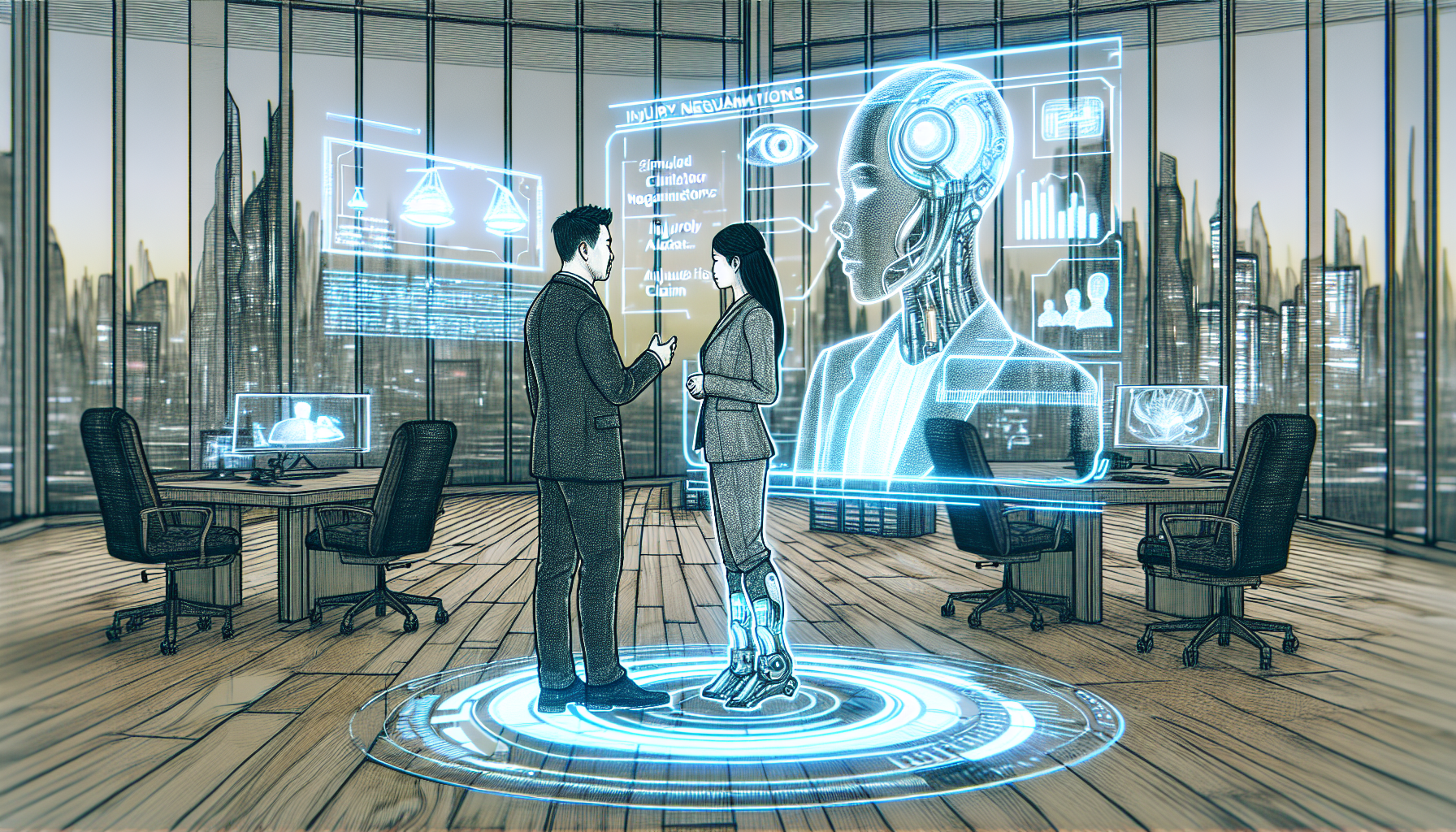
Revolutionizing Paralegal Workflows: An Introduction
Paralegals play an indispensable role in ensuring the smooth operation of criminal defense practices. Their tasks are multifaceted, ranging from meticulous document preparation to comprehensive legal research. As the legal field evolves, integrating new technologies, particularly Artificial Intelligence (AI), becomes crucial in maintaining high efficiency. ChatGPT, an AI developed by OpenAI, is a transformative tool that can significantly enhance paralegal workflows by offering robust support in various tasks. By leveraging AI like ChatGPT, criminal defense practices can streamline operations, reduce repetitive manual work, and ensure meticulous attention to detail.
The Role of ChatGPT in Paralegal Workflows
ChatGPT functions as a sophisticated language model trained to generate human-like text based on the input it receives. Capable of understanding context, it can generate relevant responses and complete various writing tasks. For paralegals, this means ChatGPT can help draft documents, summarize research, and manage communication with greater efficiency.
Large language models like ChatGPT are exceptionally useful in complementing paralegal tasks, especially those that require substantial reading and writing. With ChatGPT, paralegals can automate parts of their workflow, maintaining precision while significantly cutting down on time spent on routine tasks.
Also read:
Prompt Engineering: The Heart of AI Efficiency
Understanding the core mechanics behind any AI tool is essential, and with ChatGPT, prompt engineering takes center stage. Prompt engineering involves crafting precise and clear inputs to guide the AI in generating the most relevant and high-quality outputs. This skill is crucial for paralegals seeking to maximize the utility of ChatGPT.
Nuanced prompts allow the AI to deliver more accurate and context-specific results. For instance:
- Simple Prompt: “Draft a motion for [case description].”
- Nuanced Prompt: “Draft a motion to dismiss for a misdemeanor theft case, highlighting lack of probable cause and including relevant precedents.”
Refined prompts lead to better output quality. Essential to this process is iterative improvement, where prompts are continuously adjusted based on the AI’s performance.
Also read:
Automating Document Drafting
The task of drafting legal documents, such as motions and briefs, can be extremely time-consuming. With ChatGPT, paralegals can automate the initial drafting process. Here are some techniques:
- Structured Document Generation: Craft prompts to ensure the AI adheres to legal formatting and structure. For example, “Generate a brief for a summary judgment motion focusing on [specific legal issue].”
- Accuracy and Verification: While ChatGPT’s drafts provide a solid starting point, the final document should always undergo manual review to ensure it meets legal standards and incorporates any necessary legal citations accurately.
By using precise inputs, paralegals can ensure the output aligns well with legal requirements and saves significant time, facilitating faster turnaround times for document preparation.
Also read:
Streamlining Research Tasks
Research tasks, notably case law summaries and statute analysis, significantly benefit from AI assistance. ChatGPT aids in generating concise, accurate summaries, facilitating easier comprehension of complex legal materials.
Effective prompts here might include:
- “Summarize the key points of [specific case law] within 200 words.”
- “Extract the critical elements from [specific statute], focusing on its implications for criminal defense.”
These AI-generated summaries allow paralegals to quickly understand pertinent details, making legislative and case law review more efficient.
Also read:
Efficient Client Communication Support
AI can also assist paralegals in client communication. From drafting professional emails to responding to frequently asked questions, ChatGPT ensures consistency and professionalism.
- Email Drafting: “Draft a professional email to a client regarding the progress of their case, ensuring clarity and appropriate legal tone.”
- FAQ Responses: “Generate responses for common client queries, focusing on procedural questions and case status updates.”
With these AI support capabilities, paralegals can maintain effective client communication with less effort.
Also read:
Enhancing Organizational Efficiency
Organizational tasks, such as scheduling and document management, are vital components of paralegal workflows. ChatGPT can assist in organizing tasks and keeping track of case files with specific prompts like:
- “Create a schedule for court dates and deadlines for [case name].”
- “Organize the documents related to [specific case] and list them with a brief description.”
These functionalities help paralegals maintain organizational efficiency while focusing on more critical tasks.
Also read:
Navigating Ethical and Accuracy Concerns
While the advantages of AI are significant, ethical considerations remain paramount. Ensuring responsible and ethical use of AI involves maintaining confidentiality and verifying AI’s output through manual review to avoid inaccuracies.
Paralegals must consistently adhere to ethical guidelines and validate AI-generated content to uphold legal standards.
Also read:
Mastering the Art of Prompt Refinement
Continual refinement of prompts enhances AI performance. Paralegals should practice iterative improvement by tweaking prompts based on previous outputs. Utilizing communities and resources to share best practices and tips also helps in maximizing ChatGPT’s capabilities.
Also read:
Conclusion: Embracing the Future
AI holds transformational potential for paralegal work, particularly in criminal defense practices. By leveraging ChatGPT and mastering prompt engineering, paralegals can significantly enhance their efficiency and effectiveness. Embracing these tools not only streamlines workflows but also opens new avenues for professional growth and operational excellence. Legal professionals are encouraged to explore these technologies further and keenly adapt to the evolving landscape.


